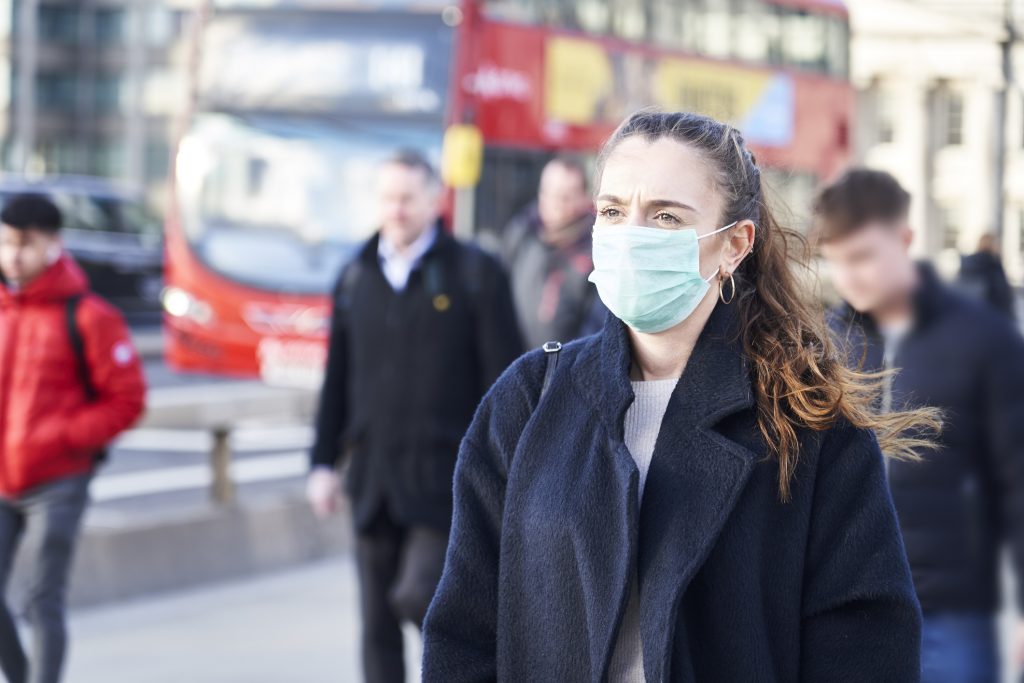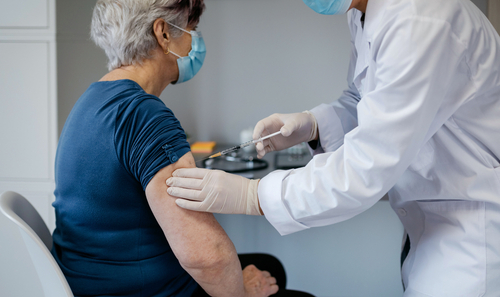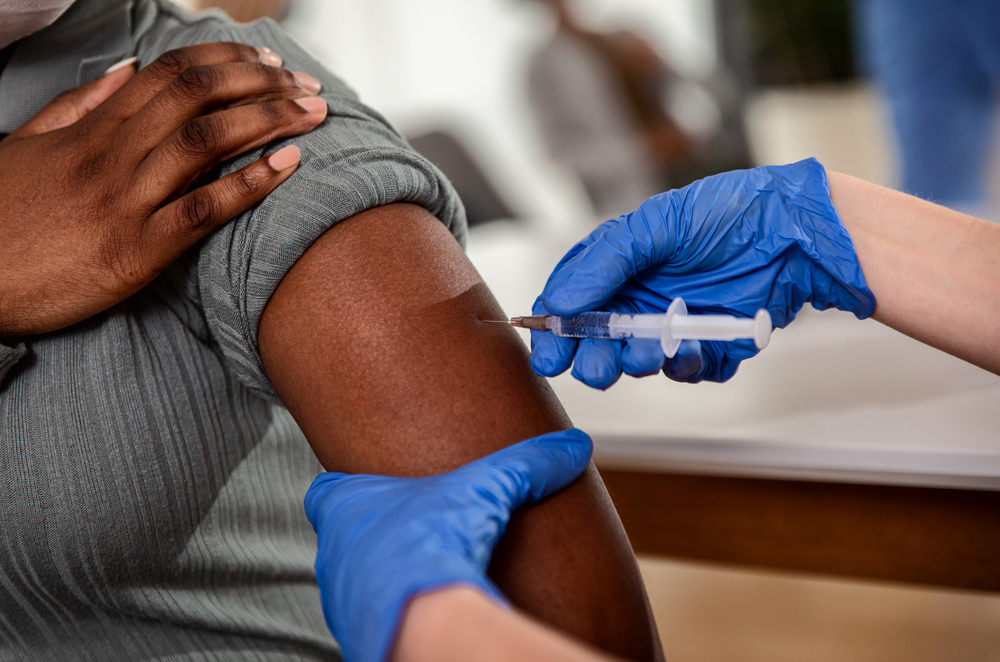Enabling harmonised, near real-time, data on pharmacovigilance of COVID-19 vaccines using routinely collected linked national datasets across the UK
4 May 2022 | Author: Professor Aziz Sheikh
Researchers used national data sets to answer questions at the start of the pandemic about who was being vaccinated, what kind of protection from COVID-19 they offered, and how safe they were on a national-scale.

To understand how safe COVID-19 vaccines are and how well they work across the UK, we needed to look at:
- How many people have had vaccines?
- How well do they protect people against COVID-19?
- How safe are the vaccines?
To answer these questions, we looked for patterns in healthcare records relating to COVID-19 vaccines of people living in England, Northern Ireland, Scotland and Wales.
Answers to these questions can help policymakers, healthcare professionals and the public to make informed decisions about COVID-19 vaccines. By looking at all records from each country, we can also pick up rare side effects that may not be found from smaller sample numbers during clinical trials.
The health data used in our work are safely stored in each of the four UK nations. Only a small number of trained and approved data scientists can use these data for research that shows clear public benefit. We carefully removed any details that could identify individuals before analysis.
Throughout this study, we have involved patients and the public, and used their views to help us decide what was important to include in our study. Our patient and public involvement (PPI) members have been involved in all stages of our work, from deciding what to look at first to being part of the team writing papers and sharing what we have found in journals. What we learned has helped to make vaccine policy decisions in the UK and internationally.
We have undertaken a number of important and impactful analyses during the course of this research project and we illustrate this using some examples:
Who has been vaccinated
From earlier research, we know that people living with severe mental health disorders are more likely to become infected or seriously ill with COVID-19, so we wanted to find out if they had been vaccinated. When looking at healthcare records in Northern Ireland, it seemed that adults taking medication to aid sleep, anxiety or psychosis were less likely to be vaccinated than the general adult population.
We also looked at whether healthcare staff in Wales had been vaccinated. We found that overall, a high number of staff did have their vaccines but the numbers vaccinated depended on their age and what jobs they did.
How well COVID-19 vaccines work
We were the first research group in the world, studying vaccine patterns in national healthcare records, to show that having a first vaccine dose gave very good protection against being admitted to hospital because of COVID-19. Between 8 December 2020 and 15 February 2021, we studied over 1.3 million vaccinated people in Scotland. Their average age was 65. We found that after the first dose of the Pfizer-BioNTech vaccine, their risk of being admitted to hospital was reduced by 91% and by 88% for those who had their first dose of the Oxford-AstraZeneca vaccine.
Studying Scottish healthcare records for the period of time between 8 December 2020 and 14 April 2021, we found that less than one in 2000 vaccinated people in Scotland had severe COVID-19 even though a large number of Scottish people had tested positive for the infection. We also found in those (nearly 700,000 people in Scotland) who’d had their second vaccine during this time, just over one in 20,000 were admitted to hospital or died due to COVID-19.
We also identified risk factors for admission to hospital and death with COVID-19 after receiving the first and second doses of the vaccines. People over 80 and those with multiple health conditions were at highest risk of these severe COVID-19 outcomes. We found that those with asthma, chronic kidney or heart disease, dementia or Type 2 diabetes had a high risk of severe COVID-19.
In other work, we have shown that vaccines prevent or shorten COVID-19 outbreaks in care home residents in Northern Ireland. We are looking at how well and for how long vaccines protect healthcare professionals in Wales, and we are coordinating a UK-wide analysis to understand how long vaccine protection lasts.
How safe are COVID-19 vaccines
One of the UK’s Chief Scientific Advisers asked us to find information about side effects in the blood in those who had their first dose of a COVID-19 vaccine. To do this, we studied the healthcare records of the 2.5 million people who had a vaccine between 8 December 2020 and 14 April 2021. Two-thirds of these people had the Oxford-AstraZeneca vaccine and one-third had the Pfizer-BioNTech vaccine.
We didn’t find any link between the Pfizer-BioNTech vaccine and bleeding or blood-clotting side effects. We did find in some people given the Oxford-AstraZeneca vaccine a slightly increased risk of a condition known as ‘idiopathic thrombocytopenic purpura’ (ITP) which increases the risk of bleeding disorders. It is important to highlight that the risk level for this side effect is similar to that of other common vaccines, and lower than the risk from having COVID-19 itself.
In our Scottish analysis, we were not able to find a link between the COVID-19 vaccines and a very rare side effect in the brain called ‘cerebral venous sinus thrombosis’ (CVST). This may have been because the number we studied was too small to find such a rare event. To address this, we repeated the analysis in England and Wales and brought results together with the Scottish data into a single analysis of 11.6 million people. We found a slightly increased risk of CVST (0.25 extra cases of clots per million people) in the 28 days after a first dose of the Oxford-AstraZeneca vaccine. This is very, very low compared with the risk of COVID-19 hospitalisation and death in people who have not been vaccinated. We did not find any link between CVST and the Pfizer-BioNTech vaccine.



